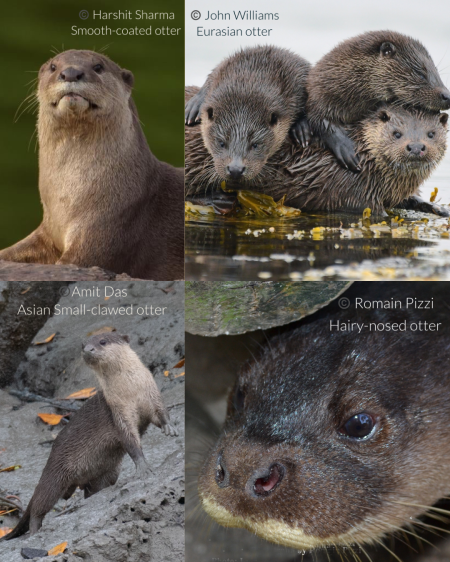Meet Prof Padma de Silva
We have known Padma for many years, as both a friend and otter colleague. She is a member of our Board, and has been involved in all of our Asian training workshops. As our Asian co-ordinator and Chair of the Asian Otter Conservation Network, she advises on all of our Asian projects.
In 2017, we visited Sri Lanka and met with Padma to discuss how we could take the Asian Otter Conservation Network further. This led to the appointment of a number of regional co-ordinators who can work more locally and then link together through her, and the overall network.
Padma is very keen on education, particularly for children, who she believes are the key to the future. She has produced a series of children's books on otters, specifically for Asian children. These were originally distributed in her home island, but they have since been sent to many other countries including Indonesia, Bangladesh, Nepal and China.
We caught up with Padma recently to ask her some questions about her work with otters over the years.
Here is what Padma had to say about her years spent working in otter conservation in Asia...
• What made you want to help otters/get into otter conservation?
In Asia, only the presence of otter was known in most of the countries in Asia, until we had a meeting in Bangalore, India in 1988. Most of the otter researchers/interested people worldwide attended, and I had the rare chance of presenting a short paper on otters in Sri Lanka at this meeting. There, I realised the importance of otters and knew I wanted to get into otter research, as it was an untouched field in Sri Lanka.
• What is/are the major threat(s) faced by otters in your area?
In Sri Lanka, the major threat is environmental pollution. It is the same all over Asia.
• Do you feel people, in general, understand the importance of otters in respect to the environment/biodiversity?
No. I don’t think so. Educated people (Science based) may know the importance of otters, mostly with respect to biodiversity, but many people do not know this.
• What more do you feel can be done to educate people about otters?
I still think that otter awareness is lacking in some Asian countries. Therefore, priority should be given to otter awareness programmes emphasising the importance of otters as a flagship species in an unpolluted environment.
• And last, but not least... What part of your work with otters has given you the most satisfaction?
I really liked the class room lessons we had during our workshops. It was extremely satisfying to see the students learning how to identify the otters, and also to distinguish the four species (see images above) as much as possible in the field using signs.


